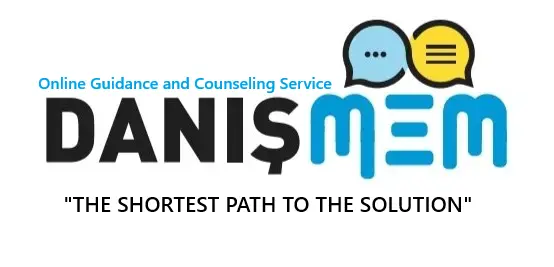Rethinking Education Beyond Academic Achievement
For decades, modern education systems have been structured predominantly around academic success. However, more educators, researchers, and practitioners are beginning to ask a deeper question: “Is education merely about transferring knowledge—or is it about cultivating human beings?” The answer to this question brings the role of guidance services in education into sharp focus.
Guidance is not a secondary or peripheral service aimed solely at resolving students’ individual issues. On the contrary, it is a core, holistic system that supports personal development, fosters human connection, and anchors learners to life. Tragically, guidance often remains invisible—accessible only to a few, perceived as a luxury rather than a right.
While serving in the R&D Department of the İzmir Provincial Directorate of National Education, I witnessed a critical gap in access to guidance services. Teachers, students, and parents needed professional support, yet often struggled to find it. DANIŞMEM emerged from this gap—not simply as a project, but as a philosophy of education.
DANIŞMEM was designed as a free, online, volunteer-based guidance system for diverse educational stakeholders—students, teachers, parents, and school leaders. But its ultimate purpose was far more ambitious: to eliminate the sense of isolation in education.
Recent reports by international institutions like the OECD and UNESCO emphasize that student success is influenced not only by academic factors, but also by psychosocial elements (OECD, 2020; UNESCO, 2021). In other words, how we feel impacts how we learn.
DANIŞMEM was structured with this multidimensional reality in mind. It integrated psychological counseling, career guidance, parental education, and administrative support within a unified, coherent framework. In doing so, it aligned strongly with both academic literature and field-based needs.
At its core, DANIŞMEM was driven by a simple yet profound belief: Every individual deserves to be heard, understood, and supported.
Through this platform, students expressed their anxieties, parents confronted uncertainties, teachers shared their professional loneliness, and administrators navigated complex responsibilities. Guidance here was not a bureaucratic task—it was a relationship built on trust.
This approach was also philosophical. Rather than viewing education as a mechanical curriculum delivery system, DANIŞMEM viewed it as a process of making sense of life—one that is only possible through supportive human connections.
The Implementation Model: Four Pillars of Service
DANIŞMEM operated through four core service modules:
-
Teacher Guidance: Offered online mentoring on project development, strategic planning, and professional growth.
-
School Leadership Guidance: Provided administrative leaders with support in legal processes, policy implementation, and school development.
-
Parental Education: Delivered online training to parents on child development, exam systems, technology use, and family communication.
-
Student Counseling: Supported high school students with issues such as exam anxiety, career planning, time management, and personal development.
All services were carried out by a network of volunteer experts and were coordinated not from a centralized hub but through a collective of diverse professional backgrounds.
With nearly 50,000 individuals reached, DANIŞMEM was not just a statistical success—it facilitated thousands of micro-transformations. One student mapped out a career path, one parent began to understand their child’s behavior better, one teacher brought a project idea to life, and one school leader found clarity in a complex administrative process.
DANIŞMEM was recognized as a notable initiative at the 17th Good Practices in Education Conference, supported by the Sabancı Foundation. Its selection for this prestigious platform not only highlighted its local success in İzmir but also demonstrated its potential to inspire educational stakeholders across Türkiye. This recognition revealed that DANIŞMEM was not merely a regional project—it held promise as a scalable, adaptable, and nationally relevant model.
However, the true significance of the initiative emerged during moments of profound difficulty. On October 30, 2020, a devastating earthquake struck İzmir, leaving the city and its people deeply shaken. It was precisely during this time that DANIŞMEM transcended its original function as an educational support system and evolved into an “emergency response and support center.” The platform provided psychological assistance, critical information, and counseling services to earthquake victims, becoming a digital backbone for solidarity and care. In this respect, it offered a compelling example of how a project can generate meaningful social value in times of crisis.
Another milestone in the project’s journey was marked by the visit of the then-Minister of National Education, Prof. Dr. Ziya Selçuk, to İzmir. During this special visit, I had the opportunity to present DANIŞMEM directly to him. His genuine interest and appreciation for the project reaffirmed that we were on the right path. The attention it received at the ministerial level underscored the transformative potential of locally initiated ideas when supported by national vision and leadership.
Looking back today, I believe DANIŞMEM has grown beyond the boundaries of being merely a “good practice.” It has become a living testament to what is possible when individual initiative aligns with institutional vision. More importantly, it has reminded us that educational technologies can and should be designed not only to enhance systems but also to respond to human needs with empathy and relevance.
A Word to the Reader
If you are an educator, administrator, or social entrepreneur working on an idea that aims to contribute to society, remember this: What gives a project its true strength is not its technology alone, but the human-centered perspective behind it. DANIŞMEM endured—even during the darkest times—because at its core, it placed people first. When developing a project, focus on the lives it seeks to serve; technology, structure, and recognition will naturally follow.
And if you are reading this today—as a teacher, a parent, a student, or a policymaker—know that this model can be reimagined and reimplemented within your own context. Because sometimes, all it takes to start something meaningful is a single question:
“How can I help you?”
Discover more from Serkan Akbulut, PhD(c)
Subscribe to get the latest posts sent to your email.

